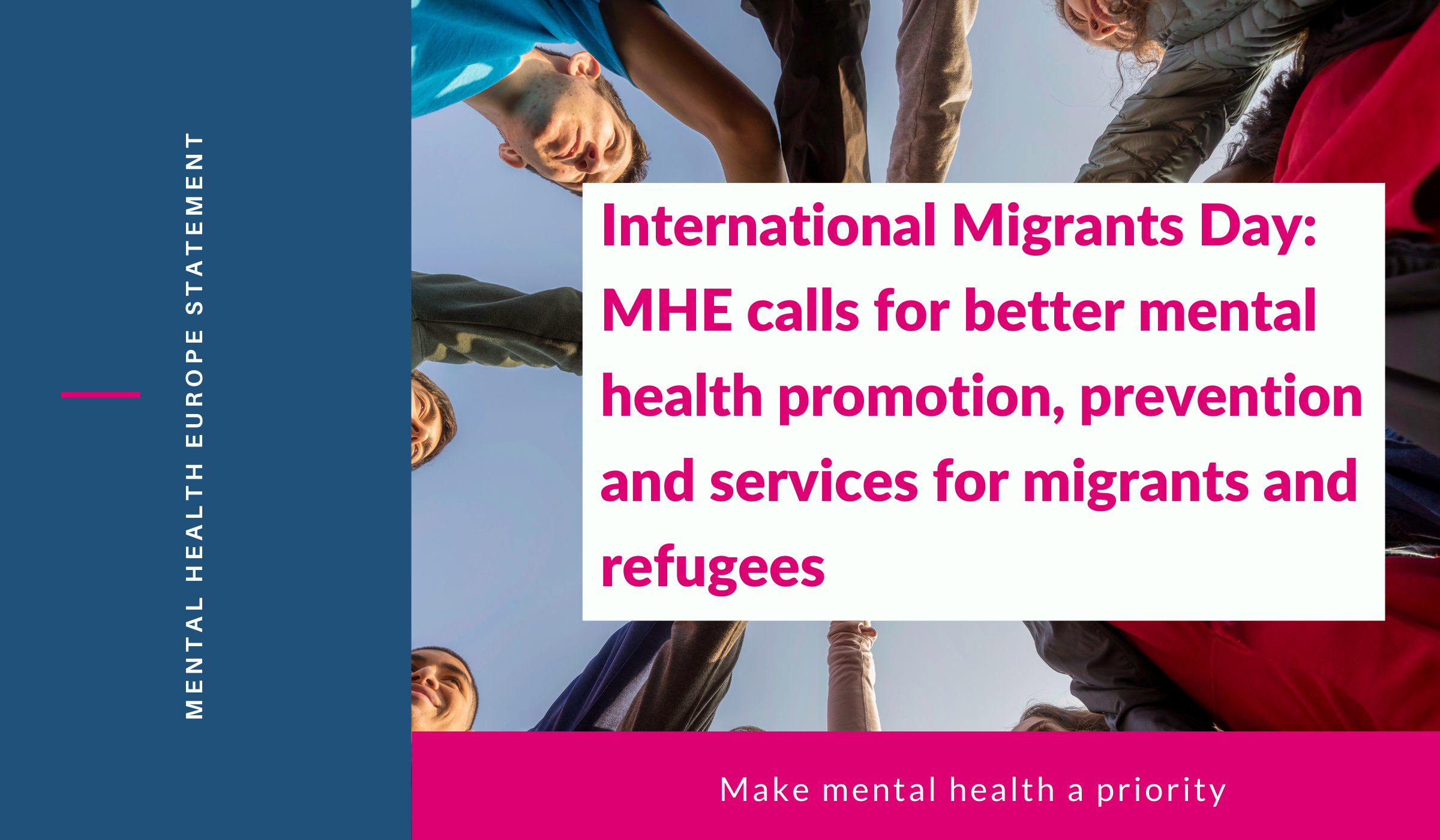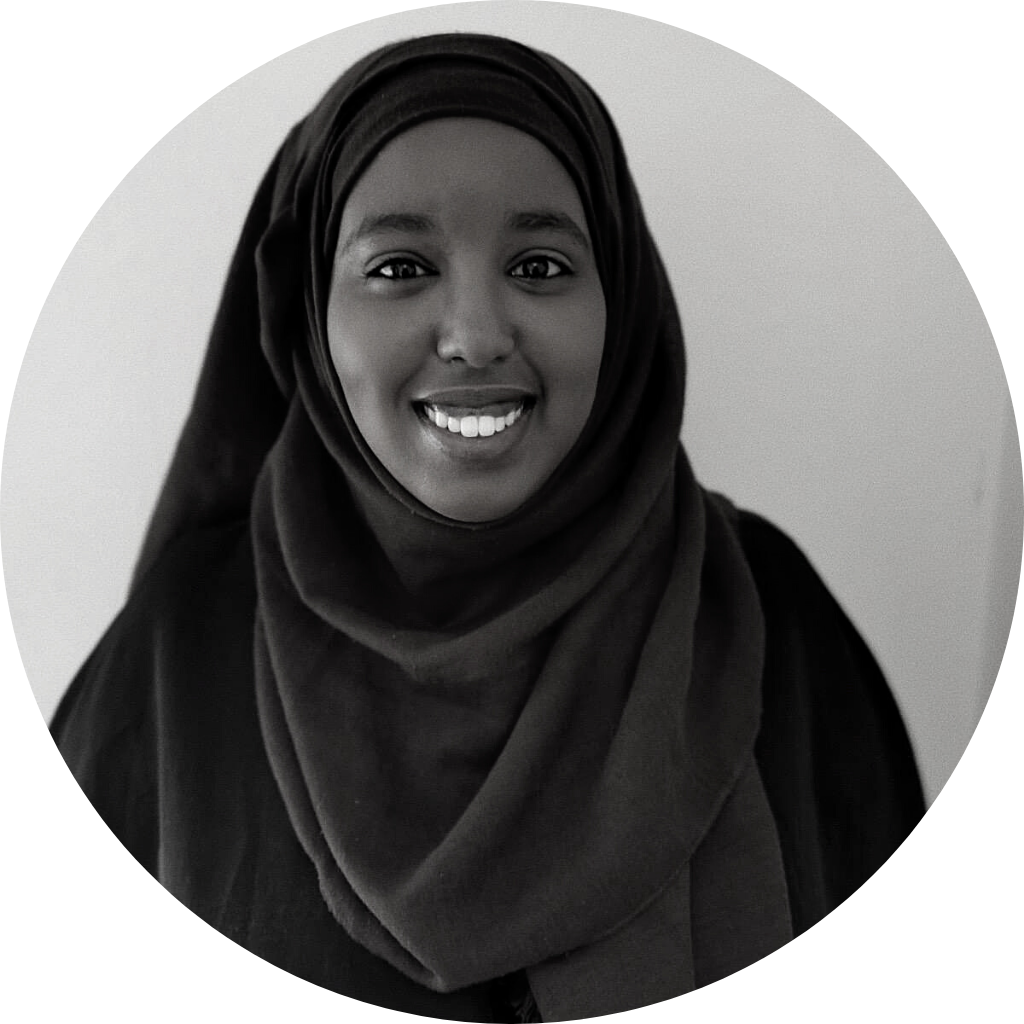MHE’s Statement for International Migrants Day


On International Migrants Day, MHE calls for stronger, more inclusive, and accessible mental health promotion, prevention and services for migrants and refugees to maximise the benefits and potential of migration
International Migrants Day (18 December), aims to raise awareness about the challenges and difficulties faced by people on the move, as well as their contributions to their communities and to their host countries.
On the occasion of International Migrants Day 2021, which focuses on ‘Harnessing the potential of human mobility’, Mental Health Europe calls for stronger, more inclusive, and accessible mental health promotion, prevention, and services for refugees and migrants to maximise the benefits of migration, for host countries and the migrants themselves.
Migration is an integral part of inclusive societies. Various factors can influence the movement of people, which can either be voluntary or forced movements because of disasters, economic challenges and extreme poverty or conflict. People on the move experience various stress factors and face intersecting challenges that negatively affect their physical and mental health. These stressors take place at various stages of the migration process: pre-migration, on the move, post-migration – that is at the destination or host country. These stressors not only exacerbate existing social and mental health problems but may also trigger new ones.
The EU Pact on Migration and Asylum: failure to adopt a human rights-based approach and protect the rights of persons with disabilities
Europe has a long way to go to ensure people in vulnerable situations, including migrants and refugees with psychosocial disabilities and mental health problems, can access tailored care. Most noticeably, the new EU Pact on Migration and Asylum which sets out the European Commission’s new approach to migration failed to protect the rights of persons with disabilities and did not adopt a human rights-based approach.
Mental health problems are considered the leading cause of disability in the European Region, where refugees and migrants are considered vulnerable groups. Migrants’ mental health, mostly affected by the entire migration experience, often remains an afterthought. This is especially the case, considering capacities for providing tailored services are often stretched or non-existent in many places, particularly within the context of scarce financial and human resources.
To ensure the human rights of migrants with mental health problems are protected, Mental Health Europe calls for the EU, Member States, local authorities, and relevant stakeholders to:
- Comply with the fundamental human rights – All measures on migration to comply with the UN Convention on the Rights of Persons with Disabilities (UN CRPD) and international standards. The psychosocial model of mental health should be applied at all times;
- Ensure safety and dignity – Respect for the right to seek asylum and for all cases to be assessed fairly, according to international law and the common asylum system;
- Build capacity – Mandating a universal standard and supporting Member States to deploy a sufficient number of adequately trained staff to carry out the vulnerability identification process. Also, ensuring the presence of appropriately trained interpreters and cultural mediators during the assessment process;
- Be inclusive – The EU and Member States to rapidly progress towards and invest in human rights compliant and equitable mental health care systems. Mental health services should be developed alongside migrants and refugees, including those with psychosocial disabilities, through meaningful consultations;
- Ensure equality and accessible services – Urgent action in addressing the increased backlog and waiting time for migrants seeking to access mental health and social services. Mental health support should not be limited to online services.
Migrants contribute with their knowledge, networks, and skills to build stronger and more resilient communities. Moving towards human-rights compliant community mental health care, is an obligation under the UN Convention on the Rights of Persons with Disabilities, which the EU and all EU Member States have ratified. As such, MHE is committed to working with all the above-mentioned stakeholders, to contribute to an equal society, one where greater opportunities exist for persons with disabilities and a Europe where everyone’s mental health and wellbeing flourish across their life course. We hope we can count on your support to build an equal Europe and world for all.
| Mental Health Europe (MHE) is the largest independent network organisation representing mental health users, professionals and service providers across Europe.
MHE and its members are increasingly engaged in addressing mental health concerns within migration policies, such as through MHE’s dedicated Migration Task Force. More recently, MHE launched its new Strategy which will see MHE intensifying its work in specific areas such as human rights, migration and intersectionality. |
Further information:
- Find out more about our work on human rights.
Stay connected
Get our latest news, personal stories, research articles, and job opportunities.

